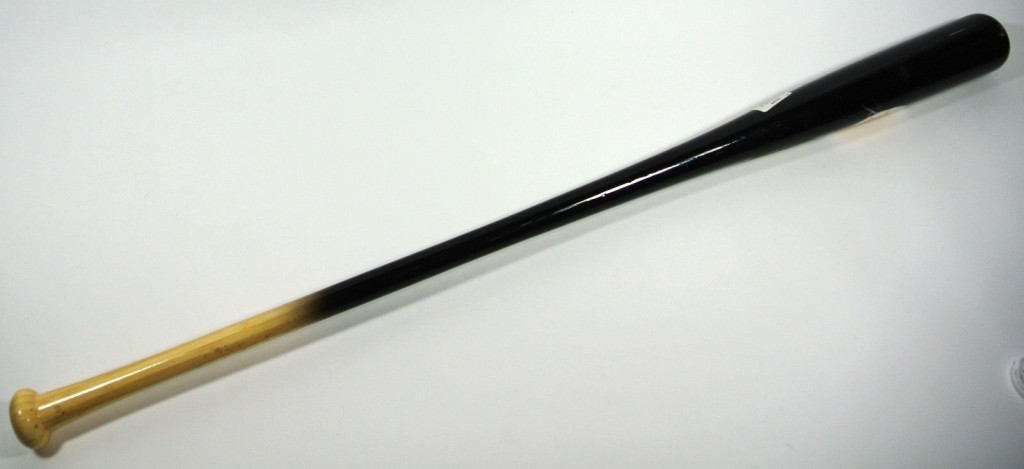You may have heard the term “fungo bat” and just weren’t sure exactly what it was.
Or maybe you’ve been assuming coaches use the same exact bats in practice to hit grounders as the players do during actual games.
Or, perhaps you’re already intimately familiar with fungo bats, but still want even more baseball bat knowledge.
Well we’ve got you all covered, because here’s our answer to an oft-asked question received by us here at BaseballBats.net:
What exactly is a fungo bat?
According to Dictionary.com, a ‘fungo’ is
(in practice sessions) a ball tossed into the air by the batter and struck as it comes down.
A fungo bat, then, is
a bat used in hitting fungoes, being lighter, longer, and narrower than an ordinary baseball bat.
The origin of the term seems to be quite unknown, with some historians claiming it comes from the Scots term “fung” meaning “to pitch, toss or fling.” While others, including the etymologists from at Douglas Harper, claim it is “perhaps” a relic of Old English fon meaning”seize”, or “possibly” from the German cognate fangen.
Regardless of the lack of historical agreement on the term, today we Baseball Bat lovers can agree that a fungo bat is just a nonregulation bat designed so that the batter can easily hit practice grounders, line drives and fly balls to fielders.
A fungo bat is simply a bat used for hitting practice balls to fielders.
Typically fungo bats are longer and thinner than regulation bats, which makes it possible for the hitter — usually a coach or non-fielding player like a relief pitcher — to more easily and accurately place the ball wherever they aim, including hitting direct pop-ups to the pitcher and catcher — a task that is much more difficult than it seems!

Because fungo bats do not follow regulations regarding bat construction, they would impede a player’s ability to hit. Therefore, obviously, baseball coaches and writers 100 years ago agreed that players should not use fungo bats in games — and not even in practice!
To this day, hitting with a fungo bat is still reserved, in almost all instances, for coaches (or the people they delegate the task to).
How much do fungo bats weight?
Fungo bats are super lightweight. Legal game bats typically weigh anywhere from 29 ounces and up. When he played for the Phillies, however, Bake McBride used an extra-light 27-ounce bat that still followed bat construction regulations. At the other end of the spectrum, Babe Ruth used to use a bat that weighed 42 ounces, and Negro League player “Mule” Suttles used a bat made from a wagon tongue that weighed 50 ounces. In contrast, fungo bats must seem almost weightless; they weigh anywhere from 17 to 22 ounces.
The heaviest bats every used in regulation games weighed 50 ounces! A typical fungo weighs less than 20 ounces.
How much do fungo bats cost?
At either end of the spectrum, homemade broomstick fungoes can be as little as a couple of dollars while customized, top-of-the-line composite fungo bats can cost hundreds! In between these two extremes, teams can find fungo bats of excellent quality for between $50 and $70. Other than composite, fungo bats are also made of other materials such as aluminum or wood. Many manufacturers, like BamBooBat Company, Louisville Slugger and Phoenix Bats produce fungo bats, which can often be just as customizeable as regulation bats, including varied color combinations so a team’s fungo bats can match the team’s colors.
Read more interesting blog posts about baseball bats on our Bats News and Blog section.
